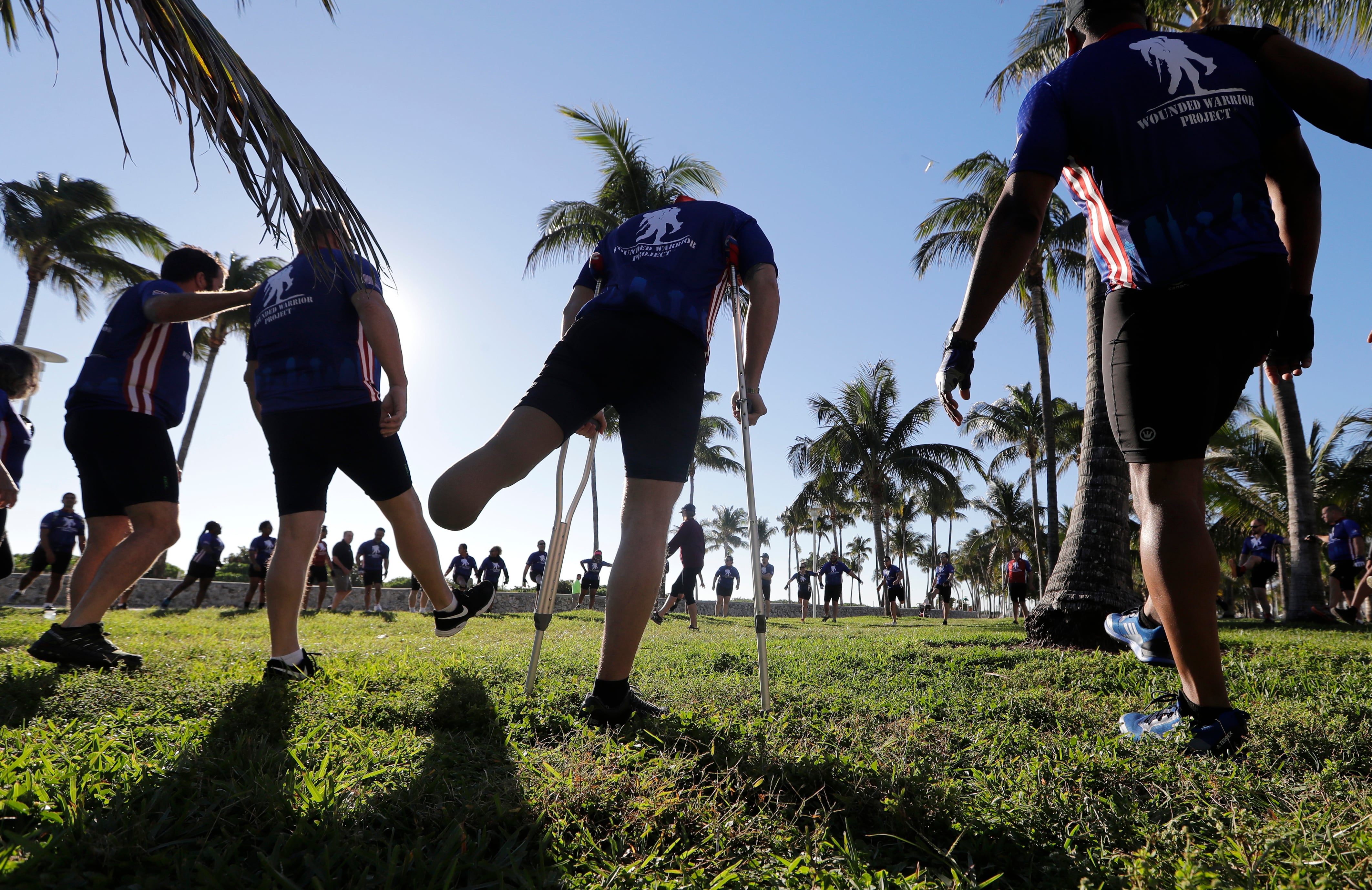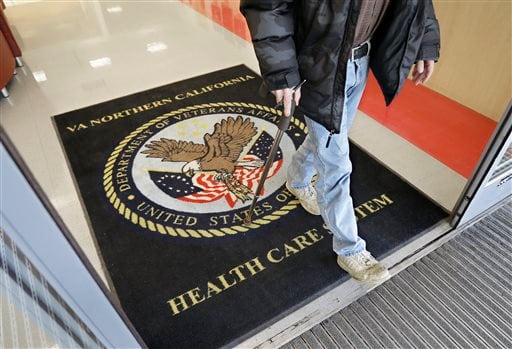Editor’s note: Due to a reporting error, this story originally contained an inaccurate description of how military and veterans disability benefits are handled. That information has been updated.
Army veteran James Powers loses out on about $1,400 a month because of how the federal government calculates his veteran disability benefits.
“That’s money that could be getting my kids into baseball or basketball or dozens of other activities that could improve our quality of life,” Powers said. “We’ve got enough money to survive, so I’m lucky that way. But after the military, we shouldn’t just be thinking about surviving. It should be about helping veterans thrive.”
Powers traveled from Ohio to take part in a rally outside the Capitol Tuesday in support of the Major Richard Star Act, legislation that could provide a windfall of disability payouts to nearly 50,000 veterans. More than 100 advocates took part in the event, pushing for renewed action on the long-stalled bill.
Advocates say the money is intended to establish a more fair process for how the government handles compensation for individuals injured during their time in the ranks.
“Our veterans cannot afford to continue losing their full earned military retirement pay because Congress insists on saving money at their expense,” said Tim Peters, an Air Force veteran and state adjutant for the Montana Veterans of Foreign Wars. “It’s objectively wrong.”
The legislation has been a top priority of veterans advocates for several years and passed out of the House Armed Services Committee last summer. But it has been stalled in the House and Senate since then, in part because of cost concerns, and in part because of general congressional inaction in recent months.
Named for an Army veteran who died from cancer complications in 2021, the measure deals with how veterans’ disability benefits are classified under federal statute.
Since 2004, veterans who collect both military retirement after 20 years of service and veterans disability benefits receive both stipends in full if they have a disability rating of at least 50%. The combined total of the two benefits can amount to several thousand dollars each month.
But under federal rules, veterans forced to retire early from the service because of military injuries are subject to dollar-for-dollar offsets in their military disability and VA disability benefits. That means that officials subtract several hundred or several thousand dollars each month from what individuals could potentially receive, leaving a gap in their income.
Navy veteran Bob Carey, executive director of the National Defense Committee, said the practice costs him $723 a month.
“I’ve had my disability rating since 2005. So that’s $158,000 I’ve lost over the years because the federal government says, ‘You don’t need all that money,’” he said. “And we’re the only federal employees who have our retirement reduced that way.”
Members of The Military Coalition echoed that sentiment, pledging the efforts of their 35 organizations in getting the measure passed this year.
Sens. Jon Tester, D-Mont., and Mike Crapo, R-Idaho, joined Rep. Gus Bilirakis, R-Fla., at the rally in supporting the bill, but also acknowledged that more pressure will need to be put on their colleagues to force the measure to move forward.
“This is long past time,” Tester told the cheering crowd. “We’ve got 70 co-sponsors in the Senate … We need to make sure leadership puts this on the floor.”
Lawmakers said the most likely route for congressional passage is inclusion in the annual defense authorization bill, currently being crafted by the House and Senate Armed Services Committee. Advocates have about two months to convince members to do that.
If not, the measure could pass as a stand-alone bill, but congressional infighting has scuttled all but a few non-essential measures in recent months.
Leo covers Congress, Veterans Affairs and the White House for Military Times. He has covered Washington, D.C. since 2004, focusing on military personnel and veterans policies. His work has earned numerous honors, including a 2009 Polk award, a 2010 National Headliner Award, the IAVA Leadership in Journalism award and the VFW News Media award.





